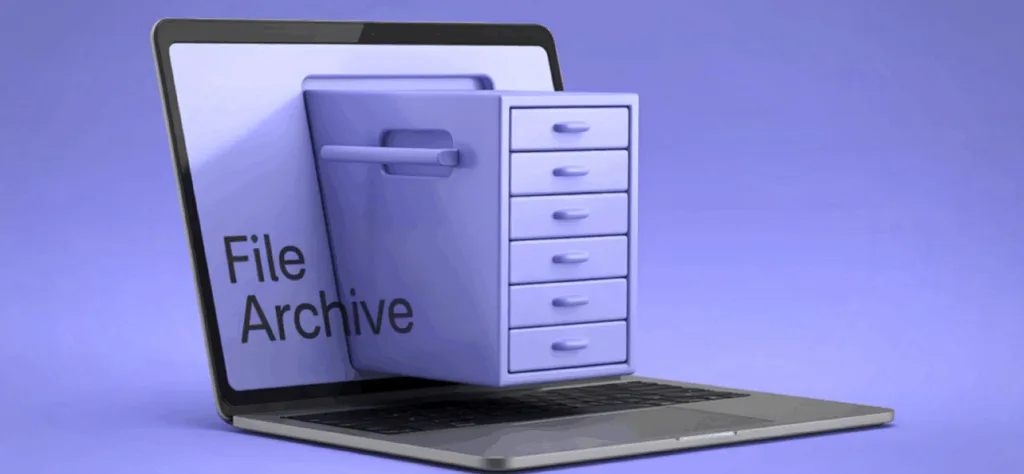Both the healthcare and legal industries are evolving through digital transformation. Hospitals have been upgrading how they store and share patient information, moving from fragmented systems to more connected electronic records. On the legal side, firms are using digital platforms to organize case files, track documents and manage workflows.
What connects both sectors is the need for fast, reliable access to medical data, especially when that data becomes evidence. One of the most visible and important developments is the shift to digital medical record retrieval, making records faster, more secure and more essential than ever.
Keep reading to learn how the move toward electronic medical records retrieval is streamlining casework, improving compliance and helping law firms move faster.
The Digital Shift: How Healthcare and Legal Systems Are Evolving
Healthcare has embraced digital tools for years, yet providers continue to refine how they capture, store and share patient information. Most providers now rely on electronic health records (EHRs) to track patient care, manage prescriptions and document clinical decisions. Patient portals have made it easier for individuals to access their records, while telehealth has expanded how care is delivered and recorded. These tools have created a more centralized and traceable flow of information.
Still, they’ve also raised the stakes when it comes to data accuracy, security and timely access, especially when that information becomes part of a legal dispute.
Law firms have made their own transition to digital, driven by the need to manage large caseloads and growing volumes of information. Tools like cloud-based case management systems, secure document storage and e-discovery platforms are now part of daily operations for many firms. But the shift goes beyond internal systems — it’s changed how firms work with outside partners, especially when medical records play a central role in litigation.
When case strategy depends on detailed medical timelines or treatment history, delays or gaps in records can derail progress. The way those records are requested, received and reviewed has a direct impact on outcomes. As a result, the legal and healthcare systems aren’t operating in silos — they’re increasingly working in sync, driven by the demands of modern casework.
Why Medical Records Are Central to Many Legal Cases
In personal injury cases, medical records aren’t just part of the file, they are the file. These records capture what happened, when treatment began, how providers responded, and what recovery looks like. That information helps establish cause, calculate damages and demonstrate the injury’s impact on the client’s life. Whether it’s a car accident, slip and fall, or workplace injury, attorneys rely on detailed medical documentation to build an accurate and defensible case.
This need extends beyond personal injury. Medical records are also central in workers’ compensation claims, Social Security disability applications, veterans’ disability appeals and medical malpractice suits. A single case might involve multiple providers, repeat visits, specialists, imaging studies and ongoing treatment. Missing pages, delayed responses or incomplete charts can stall negotiations or weaken the claim. That’s why accuracy, timeliness and compliance aren’t just operational concerns. They are strategic necessities across nearly every area of law where injury or health is at issue.
How EMR Retrieval Has Evolved With Digitization
Not long ago, requesting medical records meant printing HIPAA forms, mailing or faxing them to providers, and managing follow-up manually. Even when responses were timely, the process often felt unpredictable. Files arrived in different formats, with missing pages or incomplete documentation. That paper-heavy approach created delays, added administrative burden and left little room for real-time oversight.
Today, most law firms use — or are moving toward — digitized record retrieval systems. Digital portals allow submitting requests electronically, tracking status instantly and receiving complete records directly into the firm’s case management system.
The benefits are clear: faster turnaround times, fewer missing documents, built-in audit trails and stronger HIPAA compliance. At Rob Levine Legal Solutions, we’ve built a fully integrated retrieval platform that pulls client data, tracks provider communication and delivers medical records securely into your workflow, freeing up your team to focus on building the case, not chasing paperwork.
Legal Implications of Digital Health Records
As medical records have moved online, the legal obligations around them have become more complex. Law firms must ensure they comply with HIPAA and applicable state privacy laws, not just in how they request records but also in how they store, share and use them. Digital access makes retrieval faster but also raises the stakes around unauthorized access, data breaches and consent documentation.
Security is only part of the equation. Records also need to meet evidentiary standards. Courts may require metadata, confirmation of record integrity or documentation of how the file was received. If a record’s authenticity is ever challenged, it can undermine the strength of your case. That’s why it matters to work with a retrieval partner who can protect the process’s legal and compliance sides.
Key Benefits for Law Firms Adopting Digital Medical Record Retrieval
Adopting a digital medical record retrieval system isn’t just a matter of convenience. It’s about improving the entire firm’s operations. When records are delivered quickly and directly into your case management system, attorneys can begin case analysis sooner, leading to faster filings, earlier demand letters and better-informed negotiations.
It also lightens the load on your staff. Paralegals and legal assistants spend less time chasing paperwork and more time moving cases forward. That efficiency improves client service and helps cases stay on track.
Firms that adopt digital record retrieval systems see benefits like:
- Faster turnaround times and earlier case preparation
- Reduced administrative overhead and follow-up
- Better client communication and satisfaction
- Seamless integration with case management platforms
- Fewer errors and stronger documentation for litigation
Still, even the best digital systems come with challenges, and knowing what to watch for can make all the difference.
Challenges and Considerations
While digital retrieval offers significant advantages, it’s not without its challenges. Not all healthcare providers are equally digitized. Some still rely on outdated systems or partial electronic records, which can slow down the process. Even among providers using EHR systems, response times vary widely, and the format and completeness of records can be inconsistent.
These gaps create risk, especially in time-sensitive cases. Working with a partner who understands how providers operate — and what the law requires — is essential. Privacy rules, formatting and documentation must be right first. A reliable retrieval partner keeps cases on track and ensures the records are ready when needed.
Embracing the Right Partners for a Digital-First Practice
Digitization in healthcare has changed how law firms approach every part of casework, but nowhere is the impact more immediate than in how medical records are retrieved, reviewed and used to drive results. Moving to digital systems isn’t just a tech upgrade. It’s a shift in how your firm operates — and who you trust to support that shift matters.
Rob Levine Legal Solutions was built by a law firm that understands the practical demands of litigation. Our medical record retrieval service is fully integrated with your case management system, backed by a team that knows compliance and designed to eliminate the inefficiencies that slow cases down.
Partner with us to streamline how your firm accesses digitized medical records — faster, safer and with fewer headaches.



